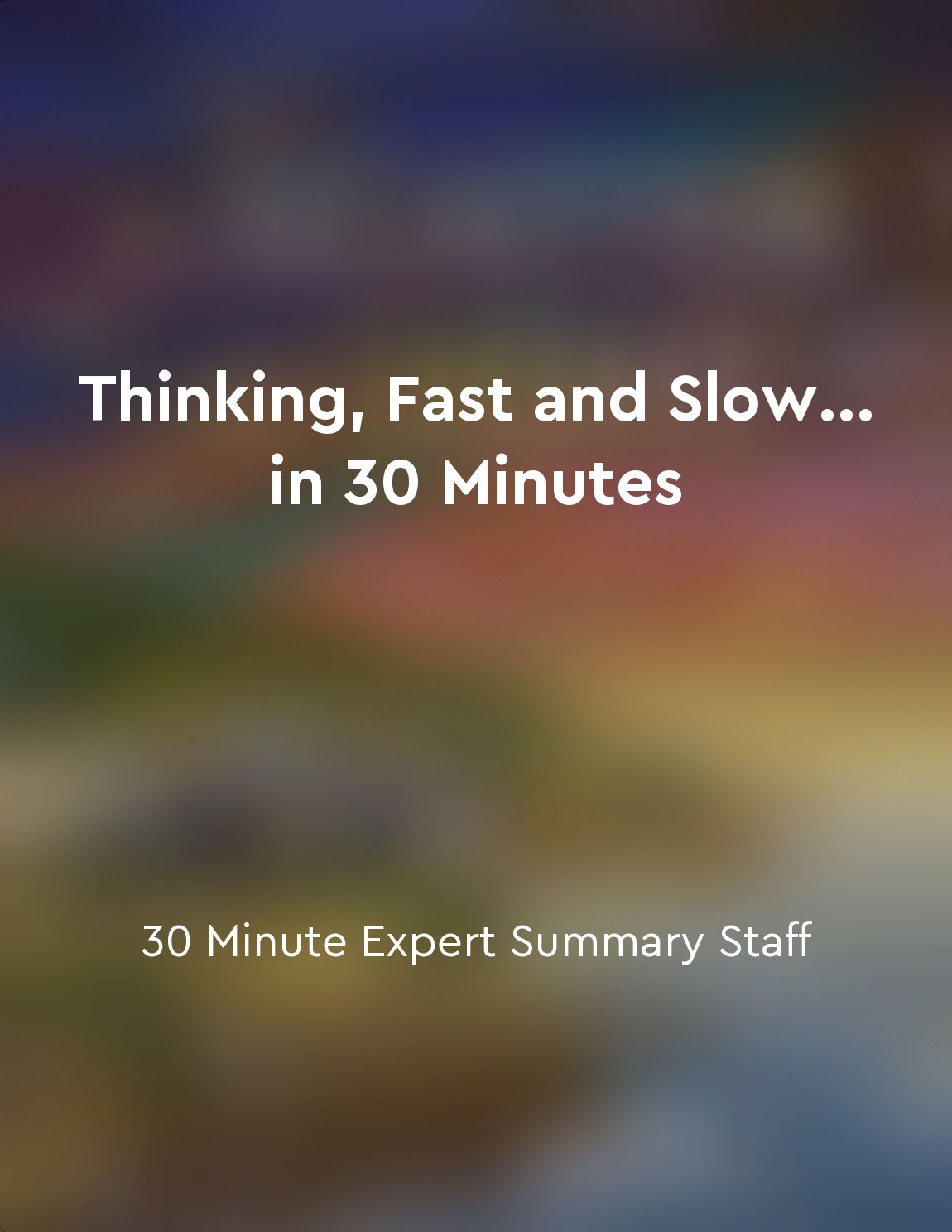Audio available in app
Selfcontrol requires effort from "summary" of Thinking, Fast and Slow... in 30 Minutes by 30 Minute Expert Summary Staff
In everyday life, we are constantly faced with decisions that require self-control. Whether it's resisting the temptation to eat unhealthy food, procrastinating on important tasks, or managing our emotions during a stressful situation, self-control plays a crucial role in our overall well-being. However, what many people fail to realize is that self-control is not something that comes naturally to us; it requires conscious effort and willpower. Research has shown that self-control is a limited resource that can be depleted over time. This means that the more we exert self-control, the harder it becomes to resist temptation in the future. In other words, self-control is like a muscle that needs to be exercised regularly in order to stay strong. This is why people often find it difficult to stick to a diet or break a bad habit – they have depleted their self-control reserves through previous efforts. The concept of self-control requiring effort is closely related to the idea of System 1 and System 2 thinking. System 1 thinking is fast, automatic, and unconscious, while System 2 thinking is slow, deliberate, and effortful. When we exercise self-control, we are essentially engaging our System 2 thinking to override our impulses and make a more rational decision. This requires mental energy and focus, which is why self-control can be so draining. One of the key implications of the idea that self-control requires effort is that we need to be mindful of how we allocate our mental resources. If we try to exert self-control in multiple areas of our lives simultaneously, we are more likely to experience decision fatigue and give in to temptation. On the other hand, if we prioritize our self-control efforts and focus on one or two key areas, we are more likely to be successful in achieving our goals.- The concept of self-control requiring effort highlights the importance of being intentional and strategic in how we manage our impulses and make decisions. By understanding the limitations of our self-control and taking proactive steps to conserve and replenish our mental resources, we can increase our chances of achieving long-term success and happiness.


